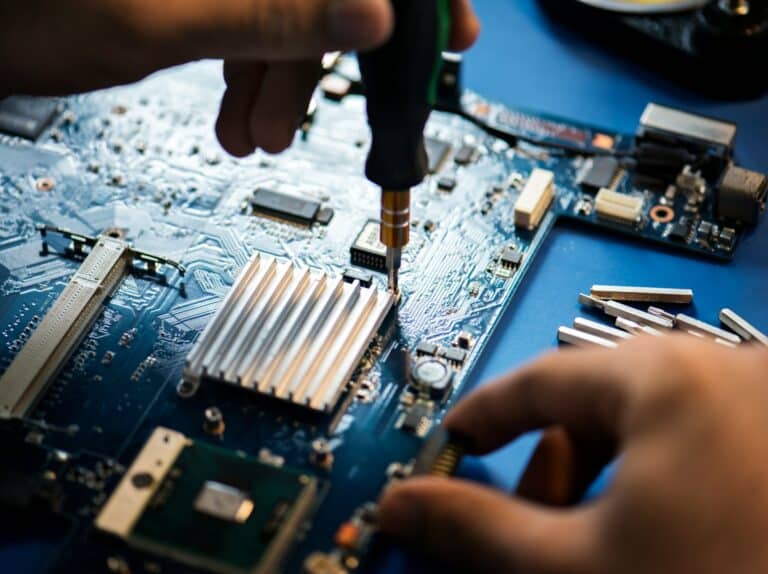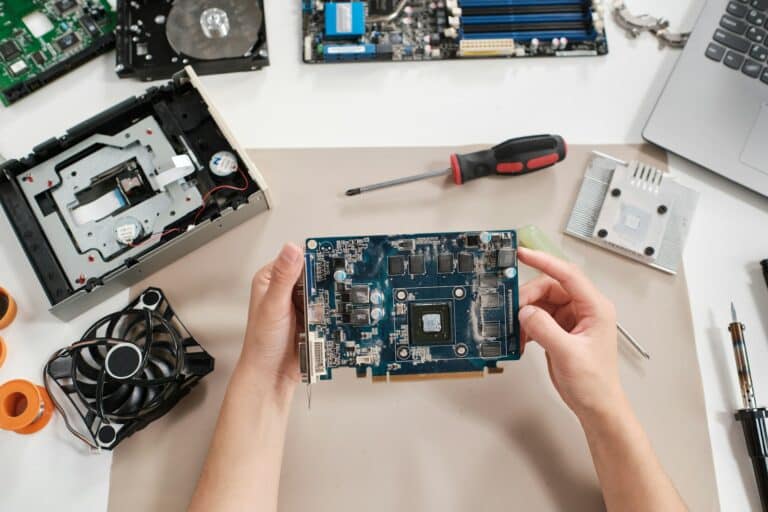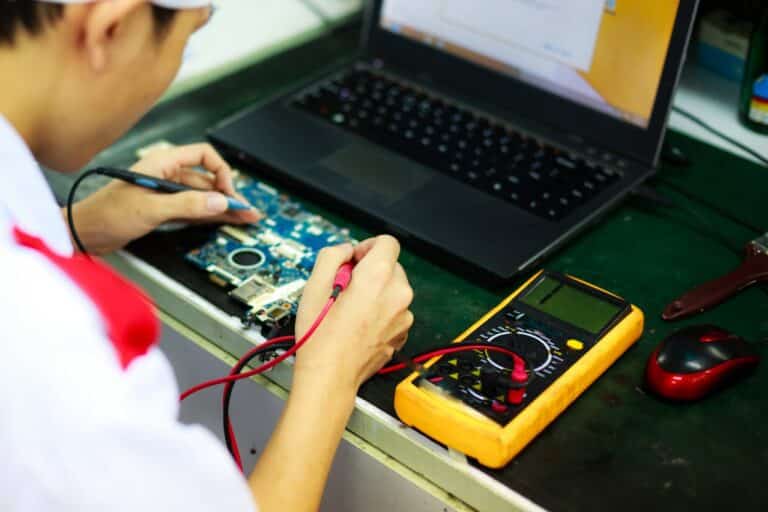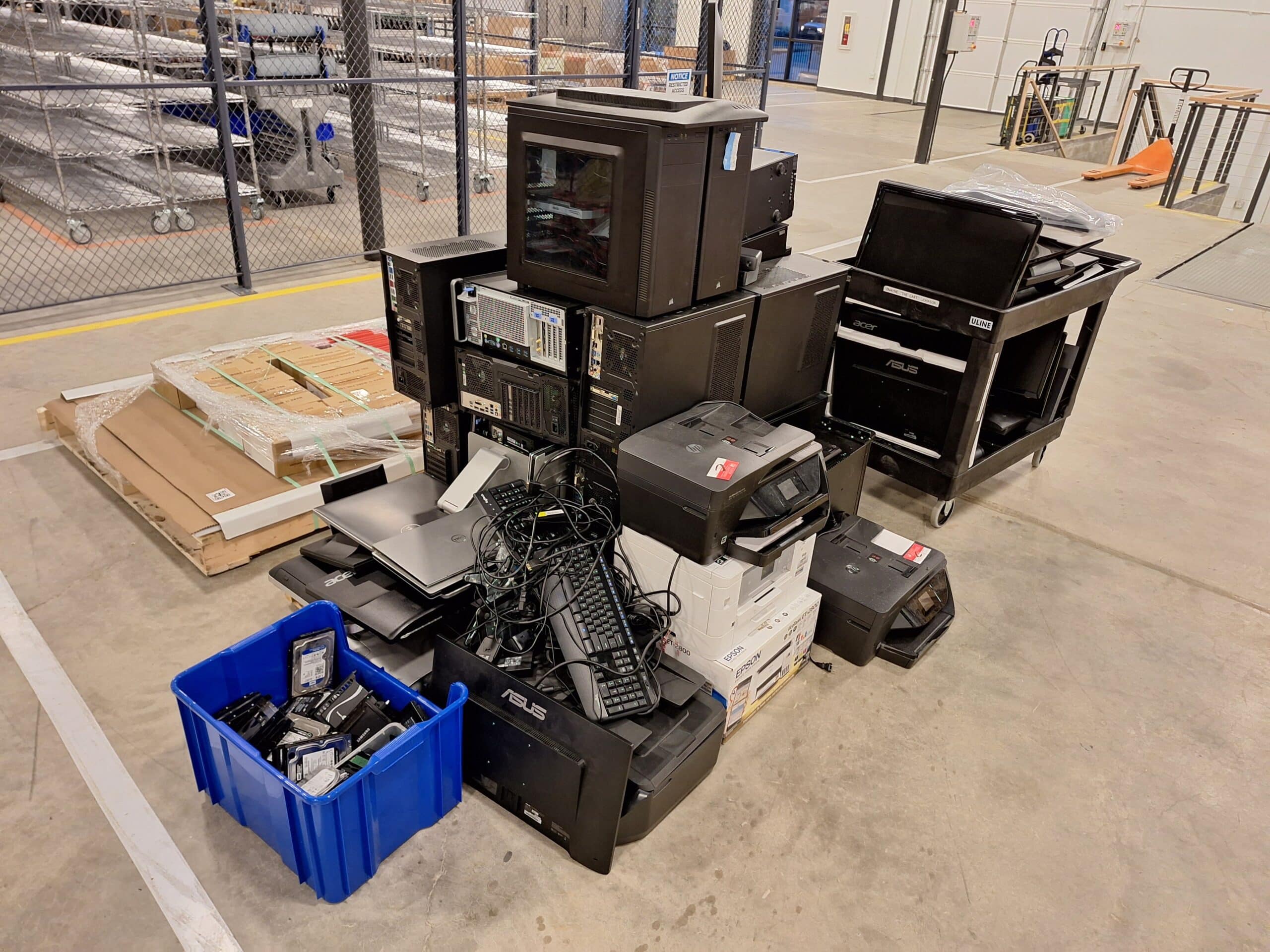
Eco-Friendly Electronics Disposal: Atlanta Computer Recycling & Hard Drive Shredding
In today’s fast-paced world, electronic devices are an integral part of our lives. We rely on these gadgets from smartphones to laptops for communication, work, and entertainment. However, the rapid advancement of technology has led to a significant increase in electronic waste, also known as e-waste. Properly managing and recycling electronics in Atlanta is crucial for environmental sustainability and the conservation of valuable resources. This comprehensive guide will explore everything you need to know about electronics recycling in Atlanta, including where to recycle computers and other electronics, how the process works, how to deal with data destruction, and why it’s essential for the community.
Table of Contents
- Why Electronics Recycling Matters in Atlanta
- What Can You Recycle in Atlanta?
- Where to Recycle Electronics in Atlanta
- The Electronics Recycling Process
- Data Destruction and Security
- E-waste Disposal Methods
- Frequently Asked Questions
- The Environmental Impact of Electronics Recycling
- How You Can Get Involved
- Conclusion: Making Atlanta Greener, One Device at a Time
Let’s dive in and discover the ins and outs of electronics recycling in Atlanta.
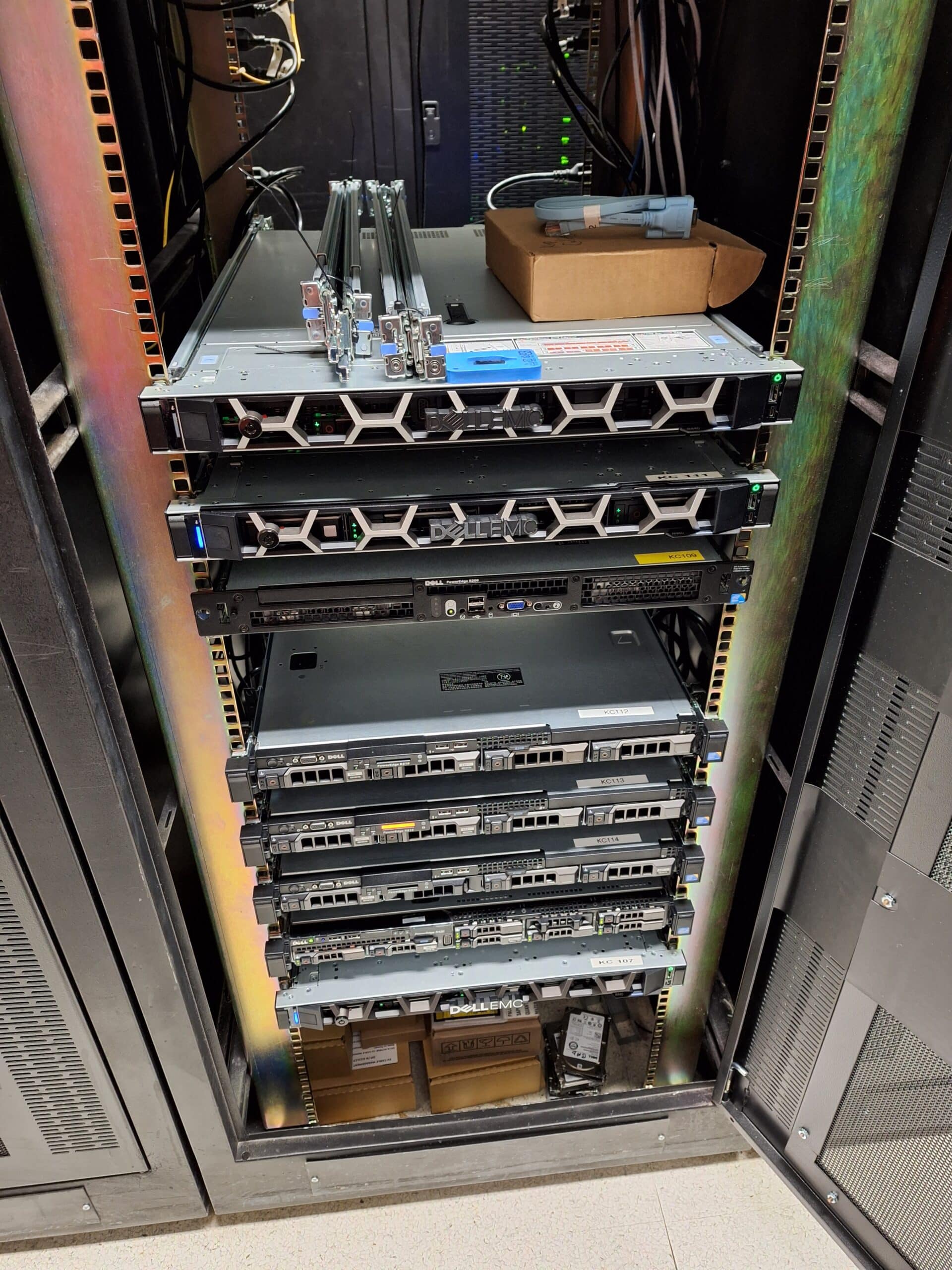
1. Why Electronics Recycling Matters in Atlanta
In the heart of Georgia, Atlanta is not only a thriving metropolis but also a city committed to sustainability and environmental preservation. Electronics recycling plays a vital role in achieving these goals. Here’s why it matters:
Preserving Natural Resources
Electronics contain valuable materials like metals, plastics, and glass. Recycling these devices helps recover these resources, reducing the need for mining and manufacturing new materials. By doing so, we conserve natural resources and reduce the environmental impact of resource extraction.
Preventing Environmental Pollution
Improper disposal of electronics can lead to environmental pollution. When electronic devices end up in landfills, they may leak hazardous chemicals and heavy metals into the soil and groundwater, posing a significant risk to public health and the environment.
Reducing Energy Consumption
Recycling electronics requires less energy than manufacturing new products from raw materials. This energy savings reduces greenhouse gas emissions and contributes to Atlanta’s efforts to combat climate change.
Creating Green Jobs
Electronics recycling creates employment opportunities in Atlanta’s green sector. It supports a local industry focused on sustainability and environmental responsibility, contributing to the city’s economic growth.
Compliance with Regulations
Atlanta, like many other cities, has regulations in place to manage e-waste responsibly. Recycling your electronics ensures compliance with these regulations and helps prevent legal issues.
By recycling your electronics, you become an active participant in Atlanta’s journey towards a more sustainable and environmentally friendly future.
2. What Can You Recycle in Atlanta?
One of the first questions people often ask about electronics recycling is, “What can I recycle?” The good news is that you can recycle a wide range of electronic devices, including:
- Smartphones and Cell Phones: These are some of the most commonly recycled electronic devices. Whether your phone is old or damaged, recycling it ensures that valuable materials are recovered.
- Laptops and Computers: Outdated computers and laptops can be recycled to extract valuable metals like gold and copper.
- Tablets and iPads: Don’t let your old tablet gather dust. Recycle it to recover valuable components and reduce e-waste.
- Printers and Monitors: These office electronics can also be recycled, preventing them from ending up in landfills.
- Server Equipment: For businesses in Atlanta, recycling server equipment is essential to upgrade technology responsibly.
- Hard Drives: Proper hard drive disposal is crucial for data security. We’ll explore this topic in more detail later.
- Office Equipment: From copiers to fax machines, many types of office equipment can be recycled.
Remember that when you recycle these devices, you’re not only helping the environment but also supporting a local recycling ecosystem in Atlanta.

3. Where to Recycle Electronics in Atlanta
Now that you know what you can recycle, the next question is where to take your old electronics in Atlanta. Fortunately, there are several options available:
1. Recycling Centers
Atlanta has various electronics recycling centers where you can drop off your old devices including smartphones, computers, tablets, printers, server equipment, and office equipment. These centers are equipped to handle different types of electronics, ensuring they are recycled properly. Check with your local recycling center for specific drop-off locations and hours of operation.
2. E-waste Collection Events
Many cities, including Atlanta area, host e-waste collection events throughout the year. These events provide a convenient way to dispose of your old electronics responsibly. Keep an eye on local event listings to find out when the next e-waste collection event will take place in your area.
3. Retailer Programs
Some retailers offer electronic recycling programs where you can return your old devices for reuse, including smartphones and laptops when you purchase new ones. This option is especially convenient if you’re upgrading to a newer model.
4. Manufacturer Take-Back Programs
Several electronics manufacturers have take-back programs that allow you to return your old devices to them for recycling. This is a great option if you want to ensure that your device is recycled by the manufacturer itself.
5. Donation Centers
If your electronics are still in good working condition, consider donating them to local charities or non-profit organizations. Many of these groups refurbish and distribute electronics to those in need.
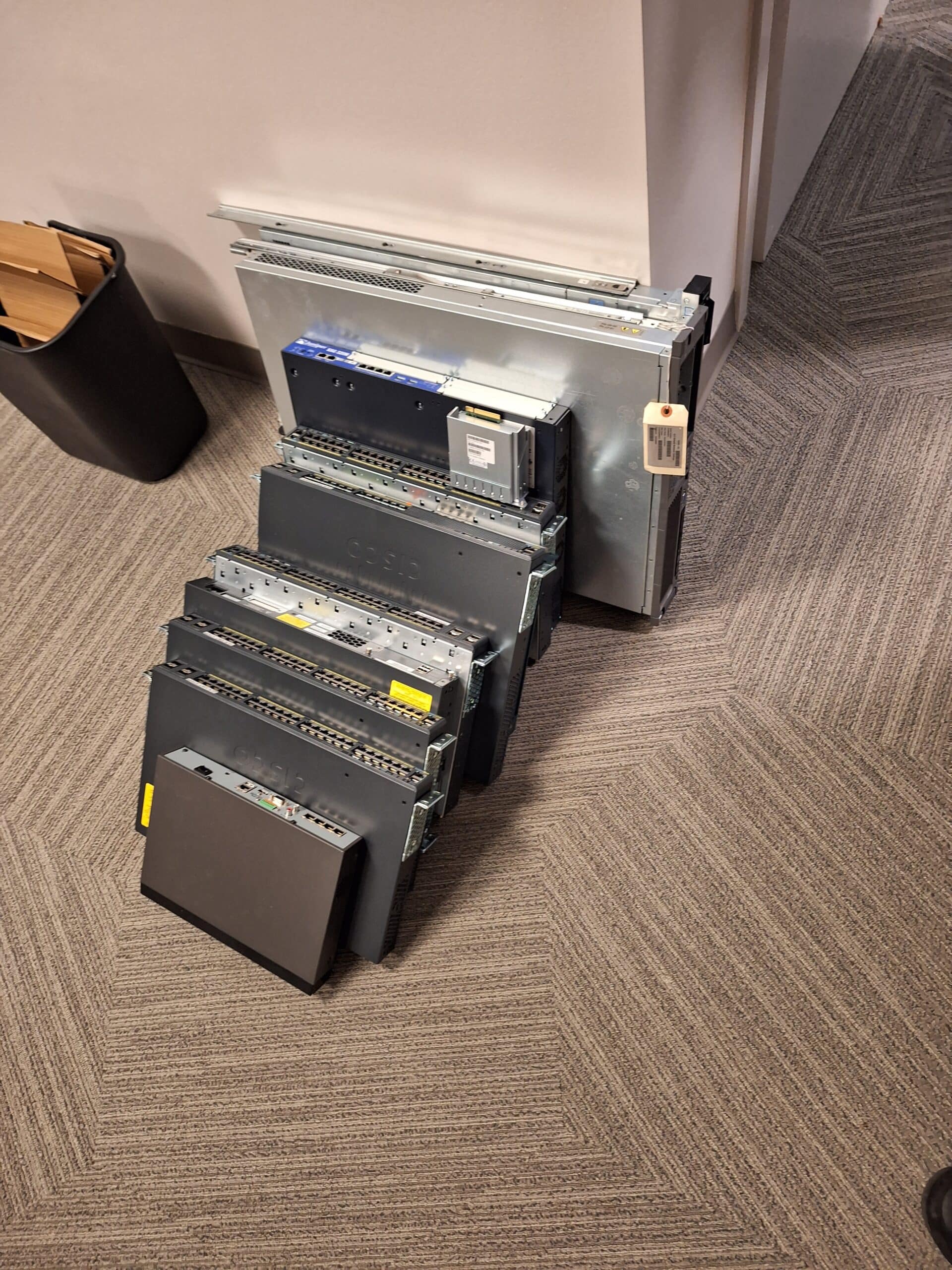
4. The Process of Electronics Recycling in Atlanta
Have you ever wondered what happens to your old electronics after you drop them off for recycling? Let’s take a closer look at the process of electronics recycling Atlanta:
Collection and Sorting
The process begins with the collection of electronic devices from various sources, such as recycling centers, e-waste collection events, and retailer programs. These devices are then sorted based on their type and condition.
Data Removal
For devices like smartphones, laptops, and hard drives, data security is a top priority. Before recycling, data destruction specialists ensure that all data is permanently removed from the devices. This is a crucial step to protect your personal information.
Disassembly
Once sorted and cleared of data, electronic devices are disassembled. Skilled technicians carefully take apart the devices to access and separate their components, including metals, plastics, and circuit boards.
Component Recovery
During the disassembly process, valuable materials such as gold, silver, and copper are recovered from circuit boards and connectors. These materials are then sent for further processing and refinement.
Hazardous Material Handling
Electronic devices also contain hazardous materials like batteries and mercury-containing bulbs. These hazardous components are separated and handled with care to prevent environmental contamination.
Recycling
After all valuable materials and hazardous components have been removed, the remaining parts are recycled. This may include recycling plastics, metals, and other materials according to industry standards.
Responsible Disposal
Any electronic components that cannot be recycled are disposed of responsibly, following environmental regulations and guidelines.
The electronics recycling process in Atlanta is designed to maximize resource recovery while minimizing environmental impact. By recycling your electronics, you contribute to this sustainable cycle.
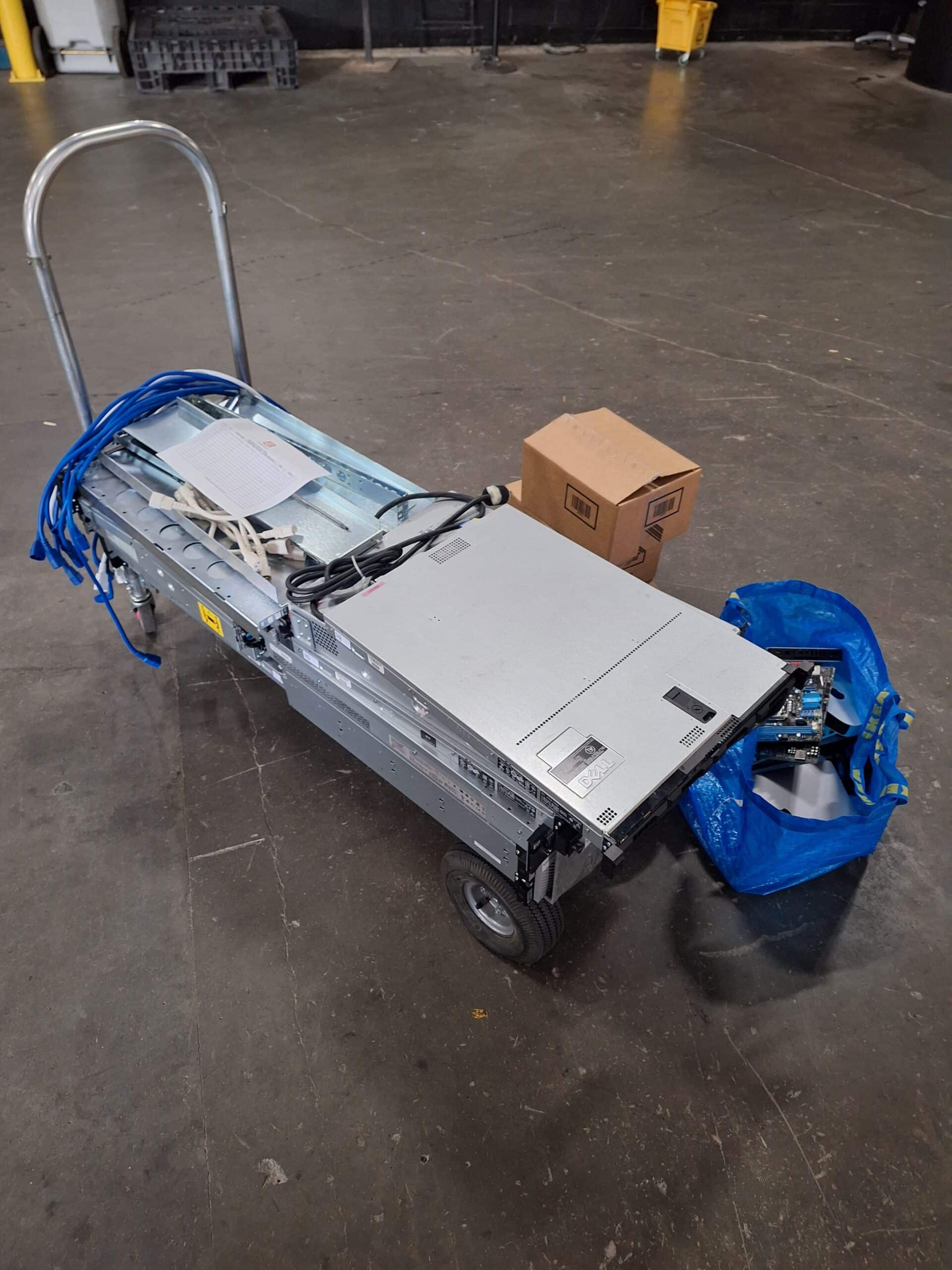
5. Hard Drive Shredding Atlanta: Data Destruction and Security
Data security is a significant concern when recycling computers, especially those that have stored personal or sensitive information. Here’s how data destruction is carried out during the process to recycle computers:
Data Wiping
Data wiping involves using specialized software to overwrite the entire storage of a device with random data. This process ensures that previously stored data is irretrievable. Data wiping is typically used for devices like smartphones and computers.
Hard Drive Shredding
For hard drives and other storage media that cannot be wiped, hard drive shredding is the most secure option. In this process, hard drives are physically destroyed, rendering them unreadable and ensuring that no data can be recovered.
Certification of Data Destruction
A reputable computer recycling center in Atlanta provide a certificate of data destruction as proof that your data has been securely wiped or destroyed. This certificate is crucial for businesses and individuals concerned about data privacy.
When recycling computers, it’s essential to choose a recycling service that prioritizes data security and follows industry best practices for data destruction.
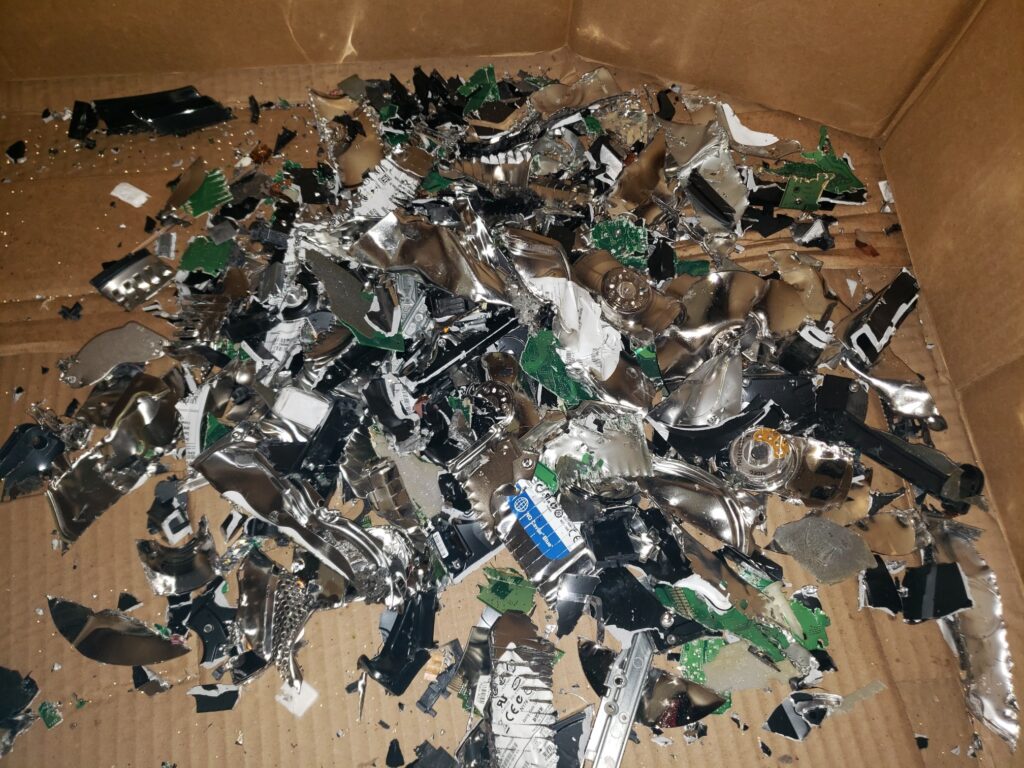
6. E-waste Disposal Methods
While recycling is the preferred method for handling e-waste, there are alternative disposal methods, though they are less environmentally friendly. Here are some common e-waste disposal methods:
Landfill Disposal
Landfill disposal is the least sustainable option for e-waste. When electronic devices end up in landfills, they can release hazardous materials into the environment over time, posing serious environmental and health risks.
Incineration
Some e-waste is disposed of through incineration. While this method can reduce the volume of waste, it may release toxic chemicals and pollutants into the air, contributing to air pollution.
Exporting E-waste
In some cases, e-waste is exported to other countries for processing and disposal. This practice can raise ethical concerns, as it may lead to improper handling of e-waste and environmental pollution in the receiving countries.
It’s important to note that these disposal methods should be avoided whenever possible. Recycling remains the most responsible and sustainable way to manage electronic waste in Atlanta.
7. Frequently Asked Questions
Q1: Is electronics recycling in Atlanta free of charge?
A1: Many recycling centers and events offer free electronics recycling. However, some services may charge a fee for specific items or large quantities. It’s a good idea to check with your chosen recycling facility for their pricing policy.
Q2: Can I recycle old computers in Atlanta?
A2: Absolutely! Old computers are commonly accepted for recycling in Atlanta. They contain valuable materials like metals and plastics that can be recovered.
Q3: How can I ensure data security when recycling my old devices?
A3: Choose a certified electronics recycling service that offers data destruction and provides a certificate of data destruction as proof that your data has been securely wiped or destroyed.
Q4: What should I do with old cell phones and tablets?
A4: Old cell phones and tablets can be recycled at many electronics recycling centers and events. Alternatively, consider donating them to organizations that refurbish and distribute devices to those in need.
Q5: Are there any e-waste disposal regulations in Atlanta?
A5: Yes, Atlanta has regulations in place to manage e-waste responsibly. Recycling your electronics ensures compliance with these regulations.
Q6: Can I recycle printers and monitors in Atlanta?
A6: Yes, printers and monitors are commonly accepted for recycling in Atlanta. These office electronics should be recycled to prevent environmental harm.
Q7: What happens to the hazardous materials in electronic devices during recycling?
A7: Hazardous materials such as batteries and mercury-containing bulbs are separated and handled with care during the recycling process to prevent environmental contamination.
Q8: How can I find e-waste collection events in Atlanta?
A8: Keep an eye on local event listings and the websites of environmental organizations in Atlanta to find out when and where e-waste collection events will take place.
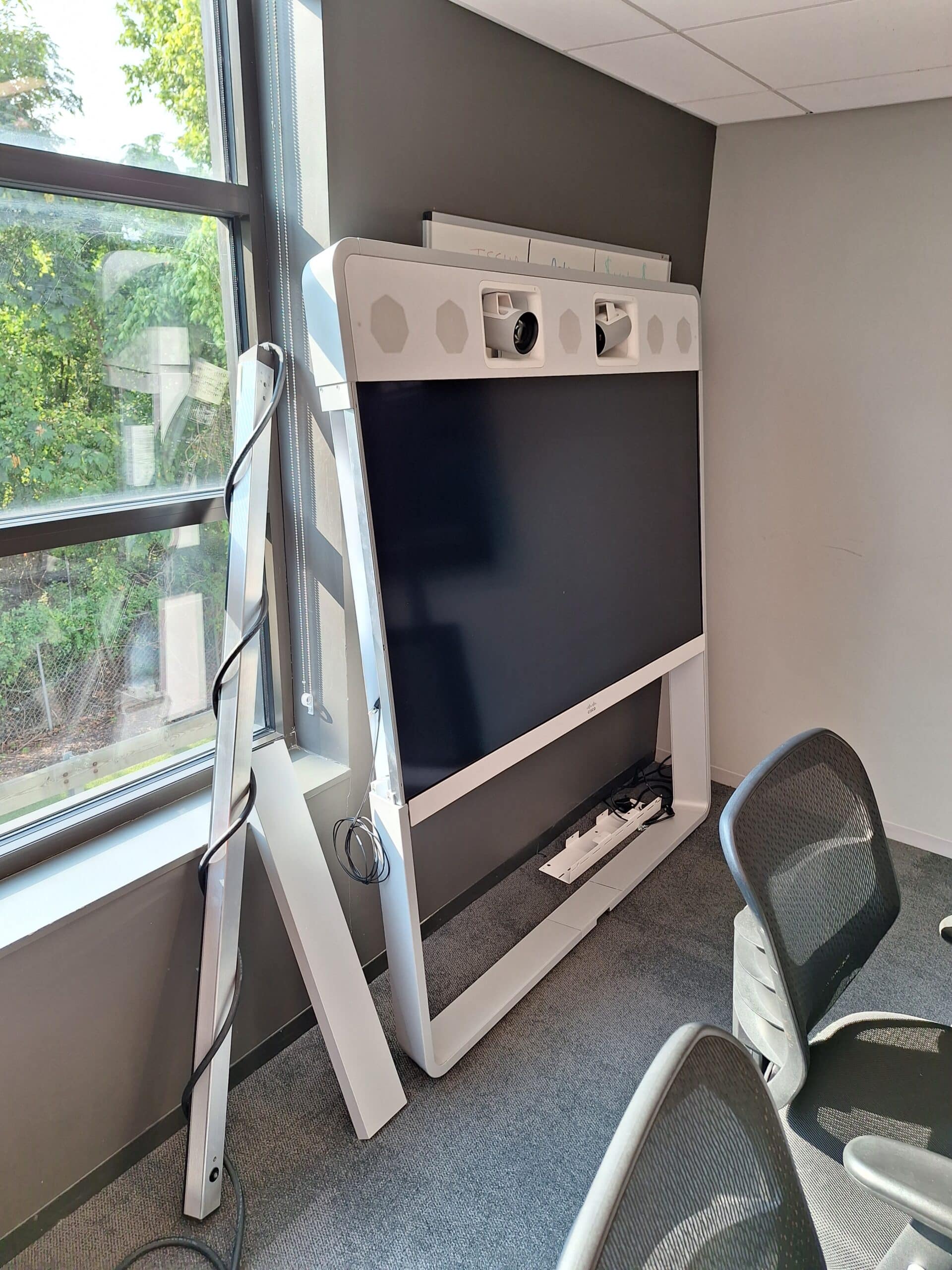
8. The Environmental Impact of Electronics Recycling
In Atlanta electronic recycling has a significant positive impact on the environment. By choosing to recycle your old devices, you contribute to:
Energy Conservation
Recycling electronics consumes less energy than manufacturing new products from raw materials. This energy savings reduces greenhouse gas emissions and helps combat climate change.
Resource Conservation
Electronic devices contain valuable materials like metals and plastics. Recycling these materials reduces the need for resource-intensive mining and manufacturing processes.
Reduction of Landfill Waste
Recycling electronics prevents these devices from ending up in landfills, where they can release hazardous materials into the environment. This reduces the environmental and health risks associated with landfill disposal.
Promotion of Sustainable Practices
Electronics recycling promotes sustainable practices in Atlanta by supporting local recycling industries and creating green jobs.
Compliance with Environmental Regulations
Recycling your electronics ensures compliance with Atlanta’s e-waste disposal regulations, contributing to a cleaner and healthier city.
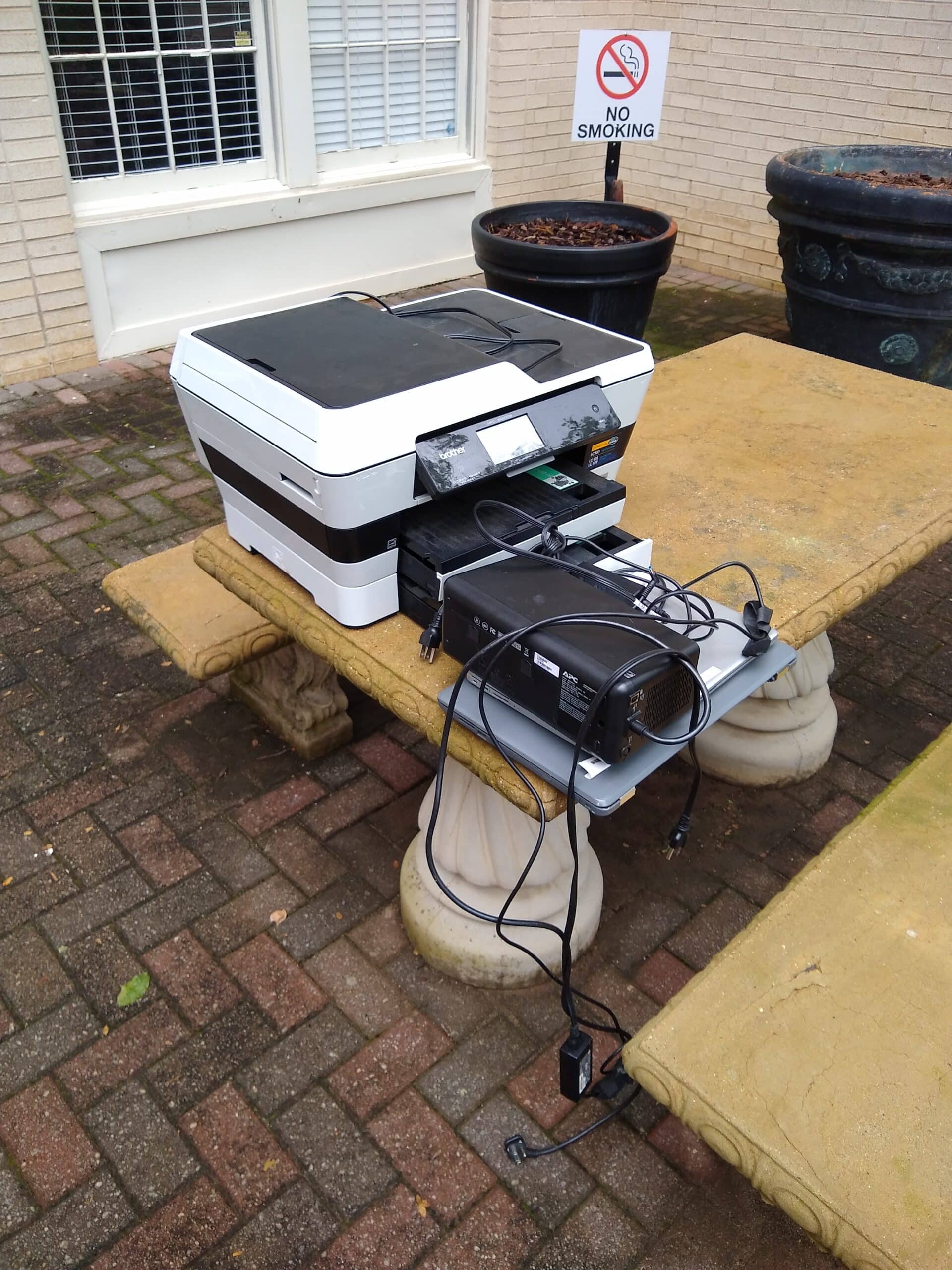
9. How You Can Get Involved
Now that you understand the importance of electronics recycling, you might be wondering how you can get involved and make a difference. Here are some steps you can take:
1. Gather Your E-waste
Start by collecting your old and unwanted electronics. This includes smartphones, laptops, tablets, printers, and any other electronic devices you no longer use.
2. Find a Recycling Center
Locate a reputable electronics recycling center in Atlanta. Check their policies, including whether they offer data destruction services and if there are any fees associated with recycling.
3. Securely Erase Data
If you’re recycling devices with personal or sensitive information, ensure that the data is securely erased using data wiping or hard drive shredding services.
4. Recycle Responsibly
Drop off your e-waste at the chosen recycling center or participate in e-waste collection events when they occur in your area.
5. Encourage Others
Spread the word about the importance of electronics recycling to your friends, family, and community. Encourage them to recycle their old devices as well.
6. Support Green Initiatives
Support local and national initiatives that promote sustainability and responsible electronics recycling. These organizations often provide resources and information on how to reduce e-waste.
By taking these steps, you actively contribute to a greener and more sustainable Atlanta.
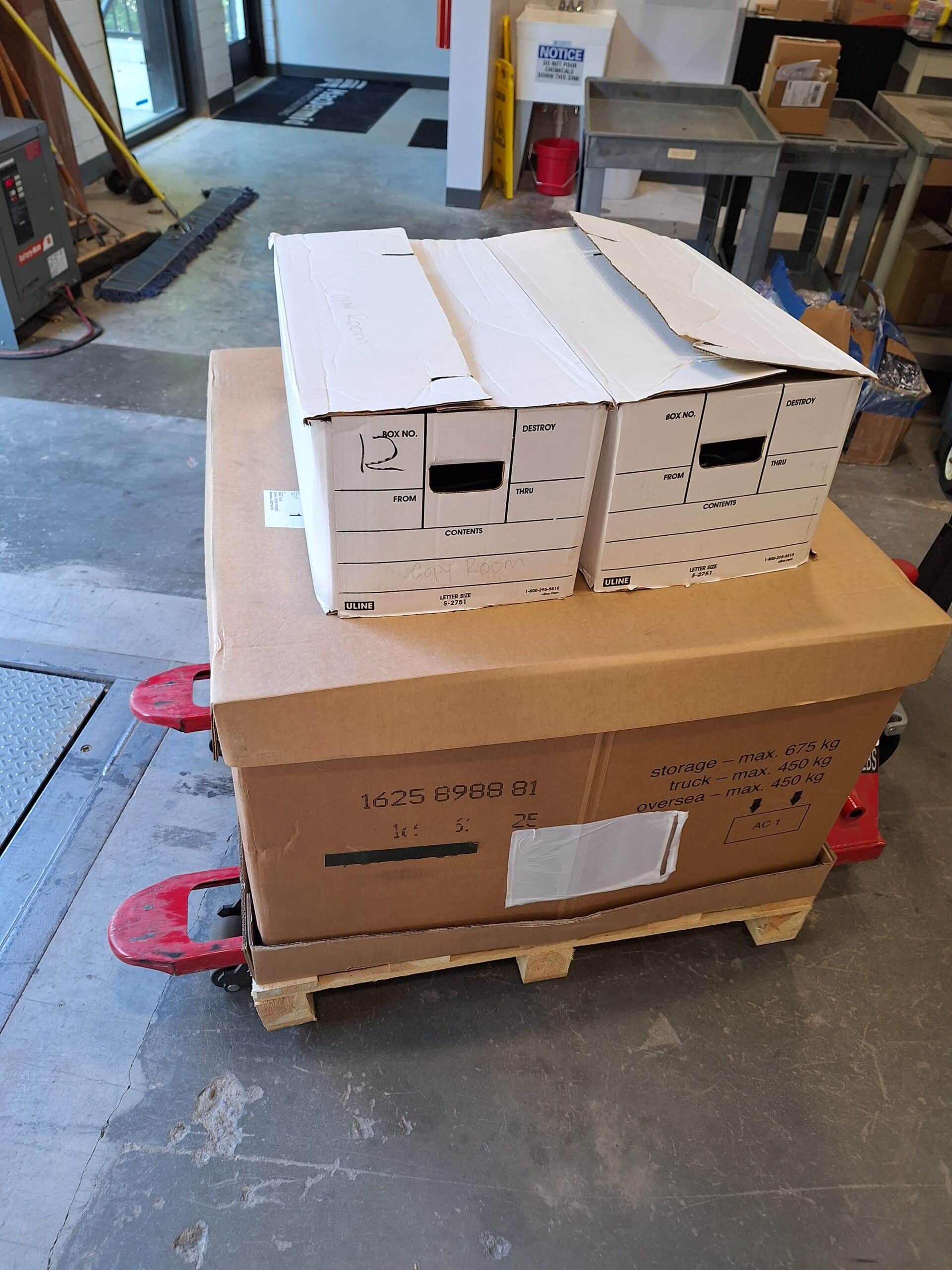
10. Conclusion: Making Atlanta Greener, One Device at a Time
Electronics recycling is not just an environmental responsibility; it’s a way to protect the city we love and cherish. By recycling your old electronics, you play a crucial role in preserving natural resources, preventing pollution, and reducing energy consumption.
Remember that when you recycle electronics, you support local businesses, create green jobs, and ensure compliance with environmental regulations. It’s a win-win for Atlanta and the environment.
So, the next time you have an old smartphone, laptop, or other electronic device that needs to be retired, don’t let it collect dust or end up in a landfill. Choose electronics recycling and join the movement to make Atlanta greener, one device at a time.
For more information on electronics recycling services in Atlanta and how you can get involved, please contact us today. Together, we can protect the environment and build a sustainable future for our city.
Protect the environment. Recycle responsibly. Join the movement for a greener Atlanta today.
